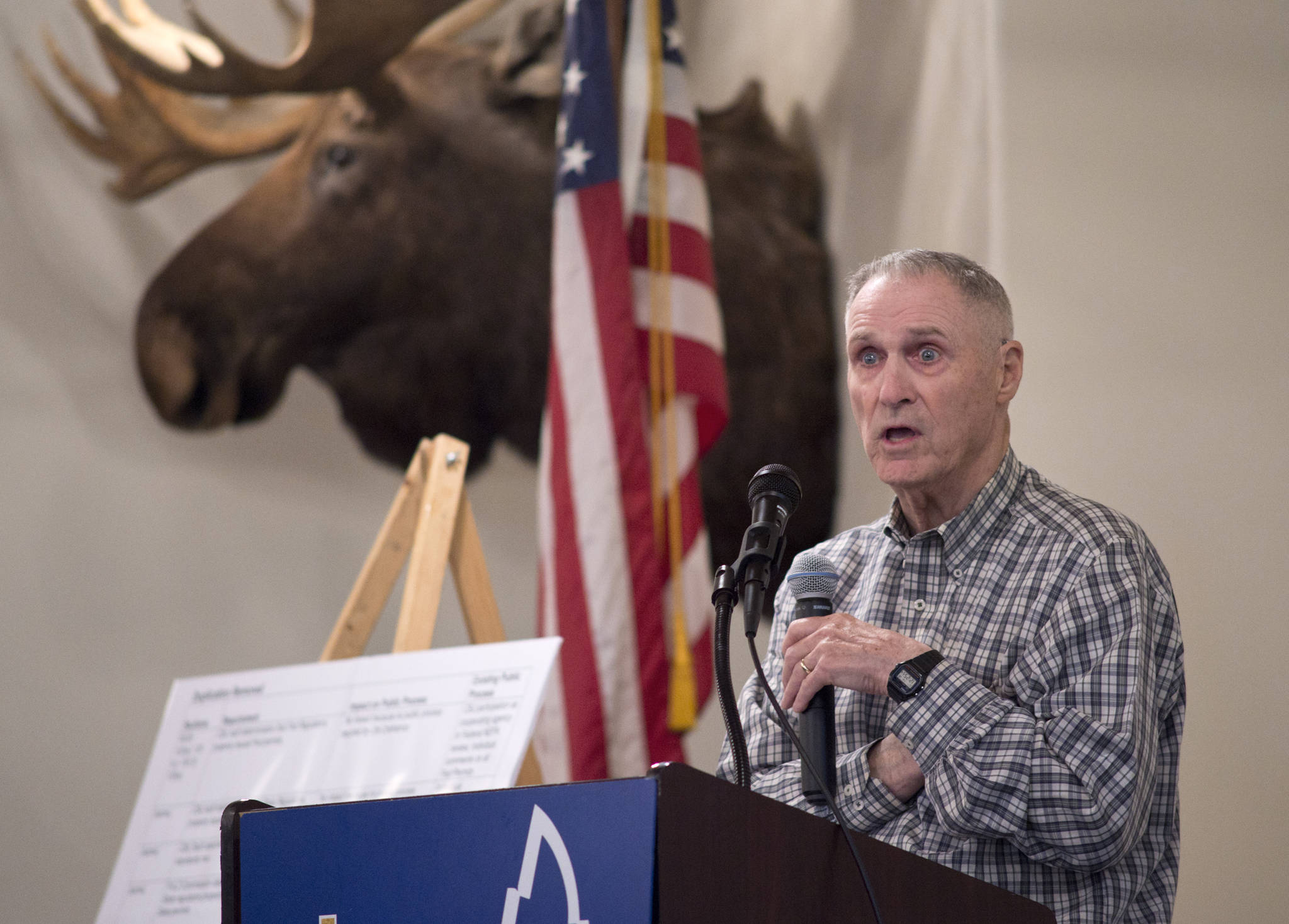By Bill Corbus
Proponents of the Oil Tax Initiative contend that its passage — Measure 1 on the Nov. 3 Ballot — will solve most of Alaska’s deficit dilemma, sustain government jobs and correct their alleged state production tax system deficiency. They claim that Alaskan profit per barrel of oil is higher than other competing oil provinces. They conclude that ConocoPhillips’s Alaska net income dwarfs that of its investments in the Lower 48 and Canada.
Will passage of Ballot Measure 1 enhance the state’s treasury? In the short run, maybe. But in the intermediate to long run, no. It will result in less oil industry investment, lower oil production and hence less revenues to the treasury. A cash-starved treasury will place Alaska in an even tighter fiscal squeeze than it faces today. Further cuts to education, the university system, law enforcement and an already crippled Alaska Marine Highway System will result — more government job losses, not stability nor increased revenue.
Ballot measure proponents argue that there is a reverse multiplier effect on the loss of government jobs on the Alaska economy due to the precipitous oil price drop. The same applies for Alaska’s most important employer the oil industry. Will these jobs come back after the price of oil reaches a level of profitability and COVID-19 comes under control? The passage of Ballot Measure 1 will create a road block to recovery and the Alaska economy will remain sick.
For Alaska, total government take, a metric for comparing various oil tax systems, includes royalties, property taxes, state and federal income taxes and production taxes. It is expressed as a percent of the market price oil less the cost of lifting oil to the ground surface and transporting to market. It normally varies with the market oil price as shown below for Alaska and competing provinces.
| Oil Province | $40 Oil-% | $60 Oil-% |
| Alaska | 96 | 57 |
| Alaska if Measure 1 passes | 109 | 69 |
| Texas | 75 | 58 |
| North Dakota | 96 | 62 |
| New Mexico | 73 | 58 |
| California | 52 | 47 |
With Alaska’s climate, sensitive environment and distance from urban centers, the cost of bringing oil to the surface is much higher than competing oil provinces. It costs $9 per barrel to move Alaska oil to market: the trans-Alaska Pipeline tariff/tanker shipping. Transportation costs in competing provinces are a fraction of that in Alaska. Alaska, with high costs combined with Ballot Measure 1’s higher total government take, will simply not be a more profitable area to operate than our competition.
The Ballot Measure’s proponents contend that ConocoPhillips makes more money in Alaska than its other North American investments. While the company’s reports do reflect higher Alaska net revenue here per “barrel of oil equivalent” it is misleading to use this number as a comparison of profitability. Using “barrel of oil equivalent” equalizes natural gas and oil and combines the two even though oil is far more valuable than gas. This not an apples to apples comparison. It’s important to note that Conoco’s second quarter 2020 SEC filing, which just came out, showed that they lost $141 million in Alaska while they paid $85 million in taxes and royalties to the state.
Nationally, the petroleum industry is in tough shape. Consequently, the U.S. Government recently reduced royalties, North Dakota has appointed a committee to help its petroleum industry and both Wyoming and Norway are in the process of lowering oil taxes. Yet, with COVID-19 wrecking our Alaska economy, anti-oil proponents of the ballot measure propose to attack our economy with massive tax increases.
In summation, now is not the time to raise taxes on any part of our economy. Alaska needs investment to stabilize and hopefully increase oil production to assure constant or increased revenues to the state treasury . The higher massive tax increase to the Production Tax rate which will go into effect if Ballot Measure 1 passes will result in necessary Alaska oil investments going elsewhere, hence lower oil production, less revenues to the state treasury and less government services. Vote no on Ballot Measure 1.
• Bill Corbus served as Alaska Commissioner of Revenue from 2003-2006, is retired and currently working as a volunteer for KEEP Alaska Competitive, a grassroot organization opposed to Ballot Measure 1. Columns, My Turns and Letters to the Editor represent the view of the author, not the view of the Juneau Empire. Have something to say? Here’s how to submit a My Turn or letter.

